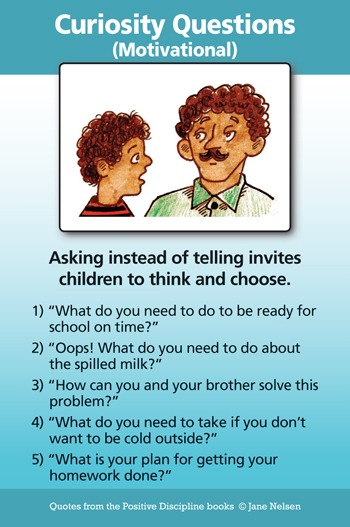CURIOSITY QUESTIONS
Helping children explore the consequences of their choices is much different from imposing consequences on them. Exploring invites the participation of children to think for themselves and figure out the consequences of their choice, to decide what is important to them, and how to achieve what they want. The end result is focusing on solutions to the problem instead of focusing on consequences.
Imposing consequences often invites rebellion and defensive thinking instead of explorative thinking. The key to helping children explore is to stop telling and to start asking curiosity questions.
Too often adults tell children what happened, what caused it to happen, how the child should feel about it, what the child should learn from it, and what the child should do about it. It is much more respectful and encouraging when we ask what happened, what the child thinks caused it, how the child feels about it, what the child has learned, what ideas the child has to solve the problem, or how the child can use what she has learned in the future. This is the true meaning of education, which comes from the Latin word educare’, which means to draw forth. Too often adults try to stuff in instead of draw forth, and then wonder why children don’t learn.


